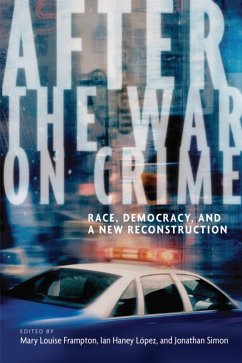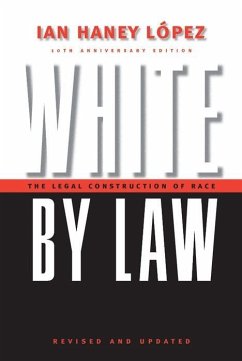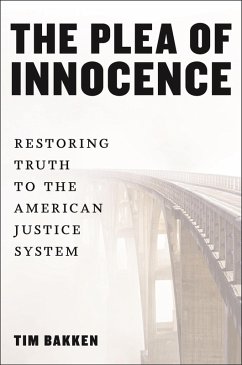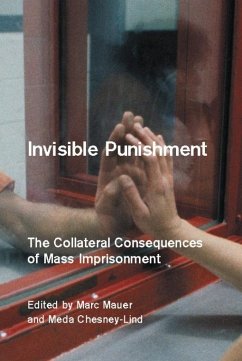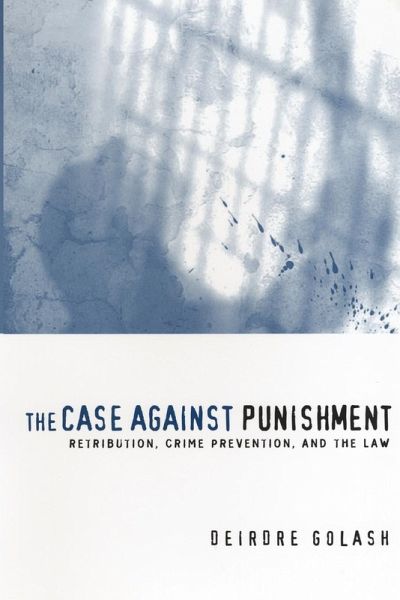
The Case Against Punishment (eBook, ePUB)
Retribution, Crime Prevention, and the Law

PAYBACK Punkte
10 °P sammeln!
What ends do we expect and hope to serve in punishing criminal wrongdoers? Does the punishment of offenders do more harm than good for American society? In The Case against Punishment, Deirdre Golash addresses these and other questions about the value of punishment in contemporary society. Drawing on both empirical evidence and philosophical literature, this book argues that the harm done by punishing criminal offenders is ultimately morally unjustified. Asserting that punishment inflicts both intended and unintended harms on offenders, Golash suggests that crime can be reduced by addressing s...
What ends do we expect and hope to serve in punishing criminal wrongdoers? Does the punishment of offenders do more harm than good for American society? In The Case against Punishment, Deirdre Golash addresses these and other questions about the value of punishment in contemporary society.
Drawing on both empirical evidence and philosophical literature, this book argues that the harm done by punishing criminal offenders is ultimately morally unjustified. Asserting that punishment inflicts both intended and unintended harms on offenders, Golash suggests that crime can be reduced by addressing social problems correlated with high crime rates, such as income inequality and local social disorganization. Punishment may reduce crime, but in so doing, causes a comparable amount of harm to offenders. Instead, Golash suggests, we should address criminal acts through trial, conviction, and compensation to the victim, while also providing the criminal with the opportunity to reconcile with society through morally good action rather than punishment.
Drawing on both empirical evidence and philosophical literature, this book argues that the harm done by punishing criminal offenders is ultimately morally unjustified. Asserting that punishment inflicts both intended and unintended harms on offenders, Golash suggests that crime can be reduced by addressing social problems correlated with high crime rates, such as income inequality and local social disorganization. Punishment may reduce crime, but in so doing, causes a comparable amount of harm to offenders. Instead, Golash suggests, we should address criminal acts through trial, conviction, and compensation to the victim, while also providing the criminal with the opportunity to reconcile with society through morally good action rather than punishment.
Dieser Download kann aus rechtlichen Gründen nur mit Rechnungsadresse in A, D ausgeliefert werden.




